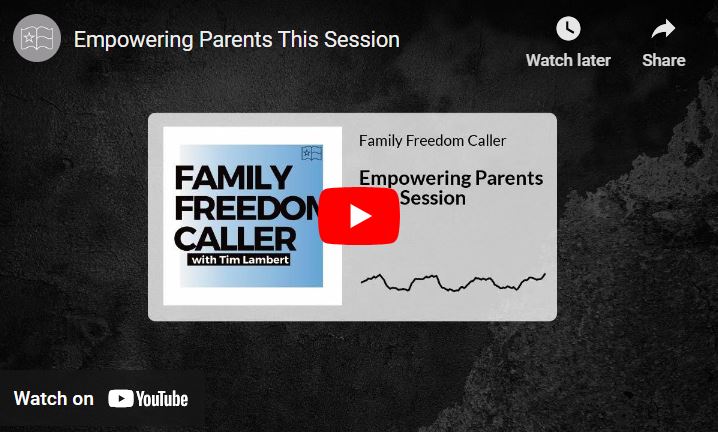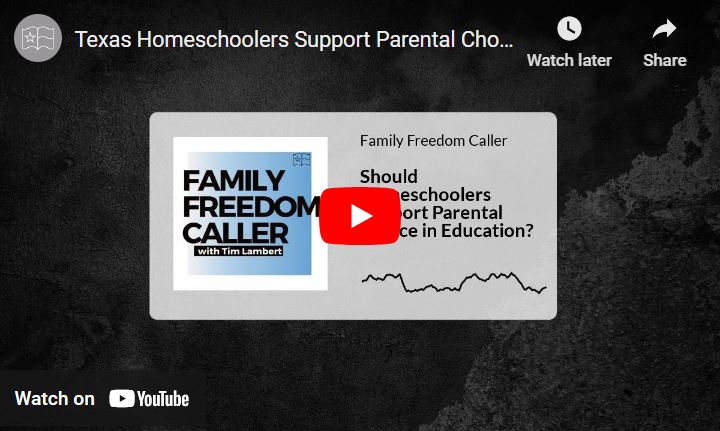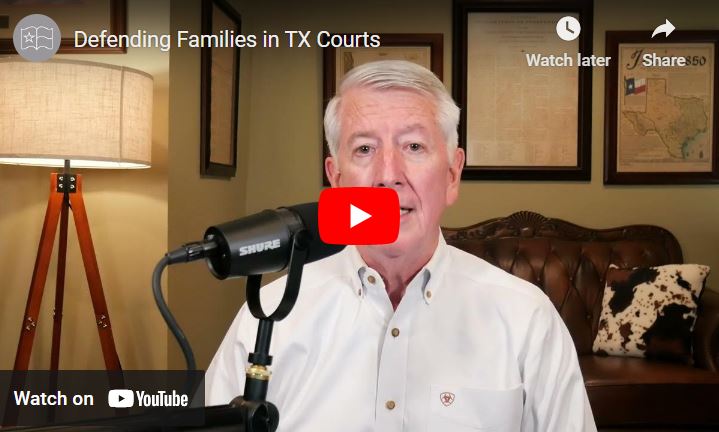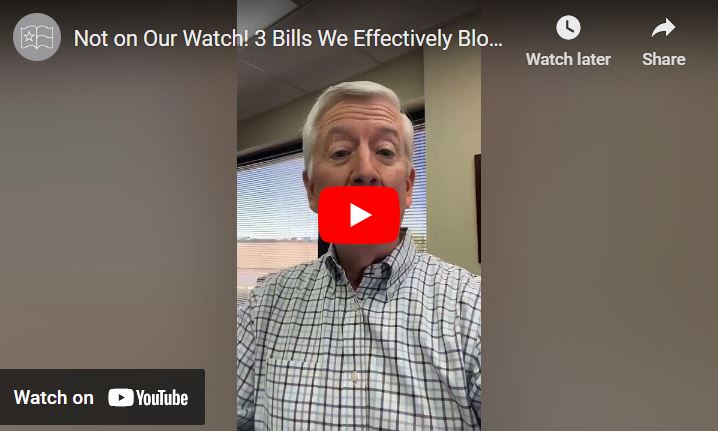Senate Bill 1063, authored by Texas Senator Charles Perry, is the latest piece of legislation designed to protect Texas families facing CPS investigations.
The bill updates the investigation requirements for complaints from anonymous sources. Under this bill, CPS will only be allowed to visit a family’s home if alleged abuse or neglect cannot be “confirmed or clearly ruled out without a home visit.”
How Senate Bill 1063 Protects Texas Families
The Family Code currently does not include clear language on whether families are protected from unnecessary visits stemming from complaints from unidentified sources.
The law allows for home visits for investigative purposes only if necessary. This protective language prevents CPS from unnecessarily visiting the home of the accused family when there is clearly no merit to an allegation of abuse.
However, because this topic is addressed under multiple sections of the legal code, there is confusion over whether this protection applies to anonymous complaints.
CPS investigations are covered under two different sections of the Family Code:
(1) Conduct of Investigations, which includes the protective language.
(2) Investigations of Anonymous Reports, which does not include the protective language.
Because this protective language is not included in the Investigations of Anonymous Reports section, some CPS offices have asked caseworkers to visit a home every time there was an anonymous complaint, even if the caseworker may be able to rule out the accusation without visiting the home.
SB 1063 closes this loophole by copying the protective language included in the Conduct of Investigations section to Investigations of Anonymous Reports. This corrects the current law so that CPS caseworkers approach investigations for normal and anonymous reports the same way.
What Senate Bill 1063 Does Not Do for Texas Families Facing CPS Investigations
SB 1063 does not affect CPS’s ability to investigate cases where there is legitimate evidence that children are abused. But, the bill still encourages caseworkers to look into cases without unnecessarily visiting a home.
The bill states that if CPS can confirm or clearly rule out abuse without a home visit, then they must do so.
Closing this loophole is one of many reforms the THSC Watchmen are determined to pass during this legislative session to continue Keeping Texas Families Free. Please consider supporting the THSC Watchmen in their fight for parental rights by donating today!
Want to stay updated on legislative issues? Sign up for email notifications sent directly to your inbox!
Senate Bill 1063, authored by Texas Senator Charles Perry, is the latest piece of legislation designed to protect Texas families facing CPS investigations.
The bill updates the investigation requirements for complaints from anonymous sources. Under this bill, CPS will only be allowed to visit a family’s home if alleged abuse or neglect cannot be “confirmed or clearly ruled out without a home visit.”
How Senate Bill 1063 Protects Texas Families
The Family Code currently does not include clear language on whether families are protected from unnecessary visits stemming from complaints from unidentified sources.
The law allows for home visits for investigative purposes only if necessary. This protective language prevents CPS from unnecessarily visiting the home of the accused family when there is clearly no merit to an allegation of abuse.
However, because this topic is addressed under multiple sections of the legal code, there is confusion over whether this protection applies to anonymous complaints.
CPS investigations are covered under two different sections of the Family Code:
(1) Conduct of Investigations, which includes the protective language.
(2) Investigations of Anonymous Reports, which does not include the protective language.
Because this protective language is not included in the Investigations of Anonymous Reports section, some CPS offices have asked caseworkers to visit a home every time there was an anonymous complaint, even if the caseworker may be able to rule out the accusation without visiting the home.
SB 1063 closes this loophole by copying the protective language included in the Conduct of Investigations section to Investigations of Anonymous Reports. This corrects the current law so that CPS caseworkers approach investigations for normal and anonymous reports the same way.
What Senate Bill 1063 Does Not Do for Texas Families Facing CPS Investigations
SB 1063 does not affect CPS’s ability to investigate cases where there is legitimate evidence that children are abused. But, the bill still encourages caseworkers to look into cases without unnecessarily visiting a home.
The bill states that if CPS can confirm or clearly rule out abuse without a home visit, then they must do so.
Closing this loophole is one of many reforms the THSC Watchmen are determined to pass during this legislative session to continue Keeping Texas Families Free. Please consider supporting the THSC Watchmen in their fight for parental rights by donating today!
Want to stay updated on legislative issues? Sign up for email notifications sent directly to your inbox!










